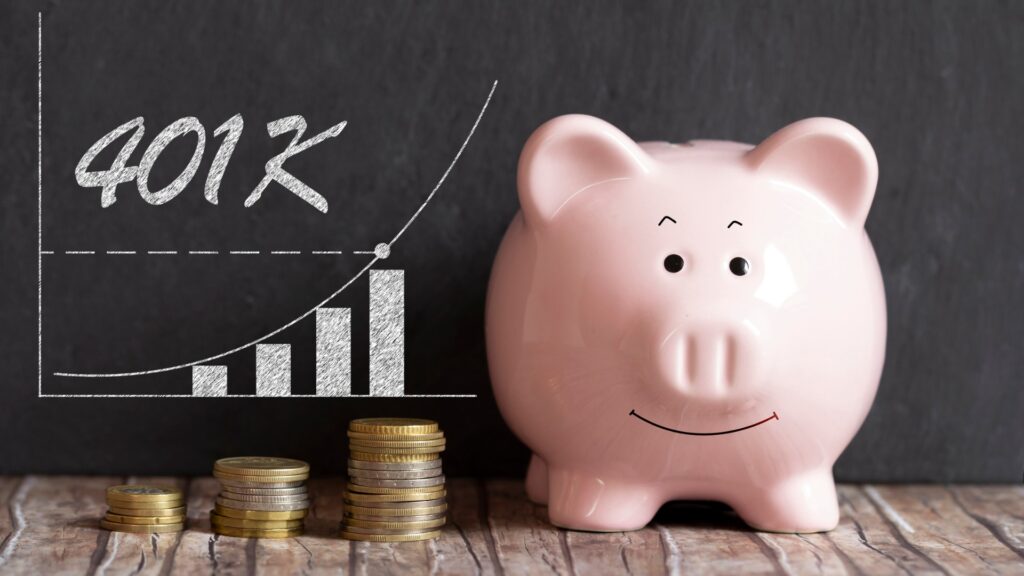The Types Of Investment Accounts and Taxes
There are a lot of different investment accounts you can open in the market. Each of them will have their tax pros and cons with them. It will be up to you to open up which account you think is right for you.
Taxable Brokerage Account
So let’s begin with the most simple account of them all. The Brokerage account. This account can be used to do investing, trading, and options trading. A brokerage account can be opened by an individual for themselves or joint. This account is taxed on all profits that are made. This is called the capital gains tax. There are two ways you can be taxed depending on your profit. If you buy and hold a stock for over a year and then decide to sell. This would be considered a long term capital gain. Which is roughly taxed like this:

Then there is a short term capital gains tax. This is when you buy and sell a stock within the same year. Short term capital gains are taxed as your income for that year. Meaning short term capital gains can move you into another tax bracket!
Types Of Brokerage Accounts
There are also two types of brokerage accounts you can have. A cash account and a margin account. A cash account means you can only use your settled cash to buy and sell stuff. Settled cash is cleared cash like a bank transaction. If you don’t have settled cash. You can’t buy anything until it settles. A margin account will allow you to buy securities without having cash settled.
This is where things get a little complicated. Cash accounts are good for day traders making many trades a day. Because you can make as many trades as you want until you have no settled cash left. Margin accounts allow you to purchase stocks without settled cash. But you are limited to only 3 day trades in 7 days. This is called the pattern day trading rule and it’s to protect day traders from losing all their cash. Day trades are where you buy and sell a stock or security within the same trading day. However the pattern day trader rules don’t come into effect if your account has more than $25,000 in it.
Ideally if you’re looking to only invest, you don’t have to worry about anything day trader related.
Retirement Accounts
401k
So we’re going to move onto the retirement accounts. Most of these you probably have heard of before. The most famous one is the 401k retirement account. A 401k is an account that is usually set up with your company unless you are self-employed. The way this account works is that your company will allow you to take a percentage of your pay pre-tax and put it into an investment account (the 401k). Typically, they will let you choose a list of mutual funds, stocks, bonds, or other securities to put that money in. And usually, your company will match up to a certain % of your 401k every quarter. Aka they give you free money!
The catch with a 401k is that you can’t withdraw the money until you are 59 ½ years old. Any withdrawal before that will result in a tax penalty. And after you are able to start withdrawing, you do have to pay income tax on any withdrawal. You also have a limit for how much you can contribute in a year. For 2022, 401k contribution limits are $20,500 for the year unless your over 50 years old in which you can contribute $27,500 for the year.
Roth 401k
The Roth 401k is the exact same as a traditional 401k except that instead of using the pre-tax dollars. You have to use post-tax dollars. The benefit of this is that you can withdraw after you turn 59 ½ completely tax free. The issue with the Roth 401k is that it does leave you with a little less cash at the time.
Typically people use one or the other when it comes to these accounts. You can technically use both if you want to. But the most efficient way to use these accounts is if you believe your income is “low” right now and you expect it to grow much more in the future. You should open the Roth 401k. But if you have a very high income and don’t expect much more growth. You should open the traditional 401k. Ideally if you are very young, it’s worth opening the Roth 401k right now and as your income grows. You can switch to a regular 401k if your company allows it.
403b
There is one more employer based plan and that is the 403b plan. This is offered to employees that work for the government, non-profits, or schools. They are nearly identical to 401ks except that usually only mutual funds are offered through it.
IRA
The IRA stands for Individual Retirement Arrangements. This account is very similar to how a 401k works as far as taxes go. Traditional IRAs are also eligible for tax write-offs at the end of each year. The difference between an IRA and a 401k is that the account is completely managed by yourself and doesn’t involve your employer. For an IRA, you are in charge of picking the stocks, bonds, and other securities you want to invest in. Similar to the 401k, once you retire, you can begin withdrawing money.
But with traditional IRA’s, you do have to pay income tax. The neat thing about Traditional IRA’s is that if you do need money before retirement, you can withdraw early depending on the situation such as buying your first home, education costs, disability, and medical costs. However, early withdrawals can lead to tax penalties depending on the situation.
Roth IRA
This is by far my favorite type of account to use and I really recommend that everyone opens up a Roth IRA. Similar to a Roth 401k, you contribute post-tax dollars to this account. When you reach 59 ½ years old, you can freely withdraw tax free. Similar to the traditional IRA, you control the investments and can take out any profit for certain situations such as a first time home purchase etc.
Because you are using post tax dollars to contribute to this account. You are allowed to withdraw your principle contribution at any time you like, tax and penalty free.
For example, if you put $5,000 in an account and it grows to $6,000. You can withdraw your $5,000 contribution completely tax free. I like to think of it as like a savings account with market benefits. Now I wouldn’t be treating this as your emergency fund or anything because after all, it is a retirement account. But it’s nice having the ease of mind that if you really were in a bad situation. You can dip into here without a penalty.
Now there is one catch with the IRAs. There is a maximum that you can contribute per year. Anyone 49 years old or younger can contribute up to $6,500 a year. Anyone over 50 years old can contribute up to $7,000 a year. It needs to be noted for your Roth IRA, that withdrawing principle early will not lower your contribution limit for the year. If you put $5,000 in your Roth IRA in March. Your total contribution for the year is now $5,000. But if in August, you withdraw $2,000 from your principle. Your total contribution is still $5,000 for the year.
A few things before we move on. 401k and IRA contribution limits can change from year to year based on government decisions. These plans are only available in the US but other countries have very similar plans. If you live elsewhere in the world, I highly recommend you open the equivalent available account. You can also open as many brokerage accounts as you would like but are limited when it comes to retirement accounts.
Our Recommendation
The most efficient way to go about investing would be to max out your 401k and Roth IRA contributions and use any extra income in a taxable brokerage account. That’s not ideal for most of America, myself included. I also like to take more control of my own investments and trades, and my company doesn’t have the best 401k investment plans.
So what I do is contribute enough to get my employers full 401k match which is 6% of my paycheck for me. I then use my funds to max my Roth IRA out and use any extra in my taxable brokerage account. My Roth IRA is where I will put my best long term investments while my taxable accounts are used for some long term investments but also short term trades.
I know it’s a lot of information to take in but this is all super important information to know!
I want to give you a piece of homework to do after this lesson. If you do not have any accounts opened yet. I want you to to check out all the different broker sites here and choose one that you like and open up an account. I recommend starting with a ROTH IRA but a brokerage account is just fine too!


